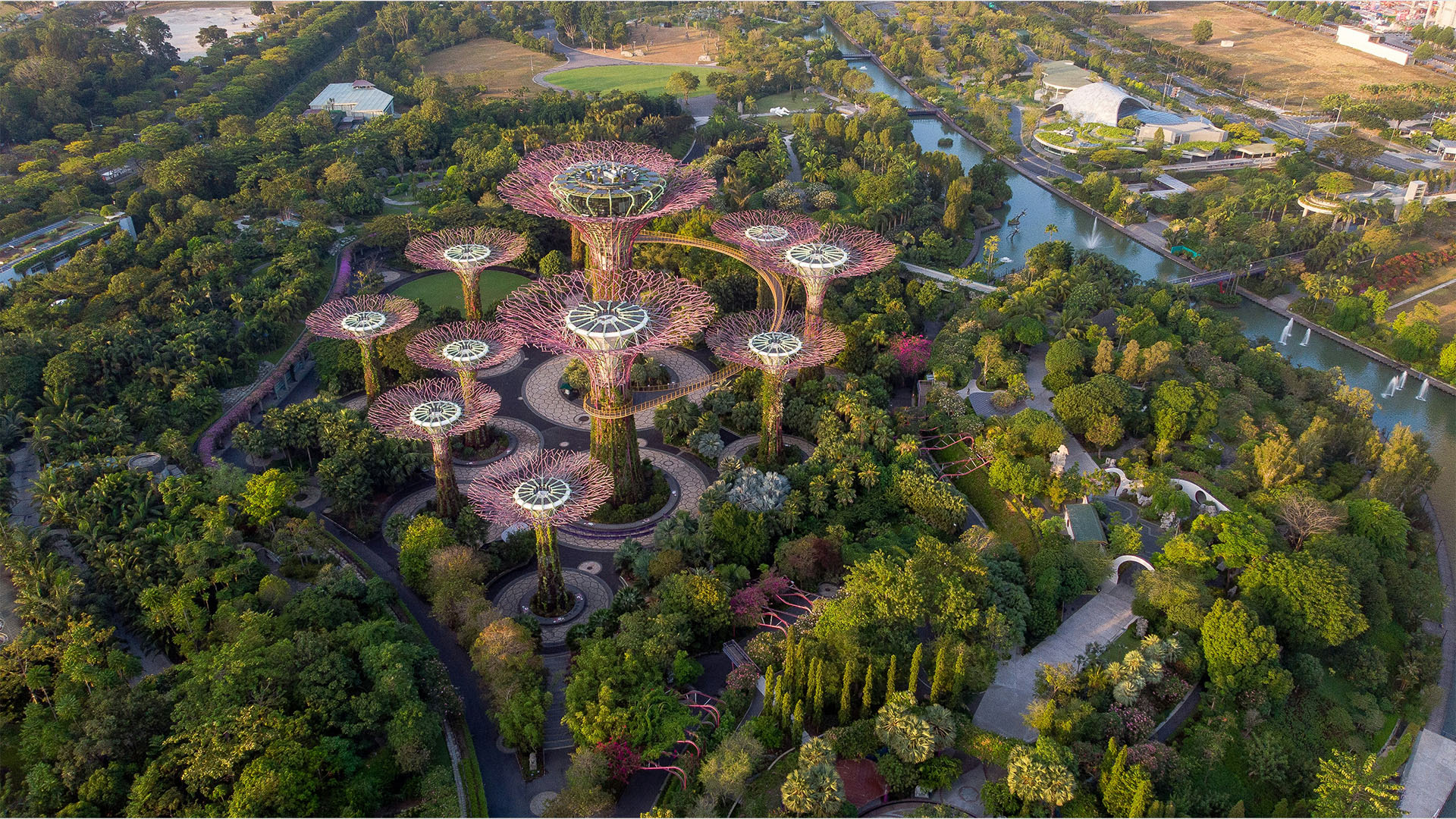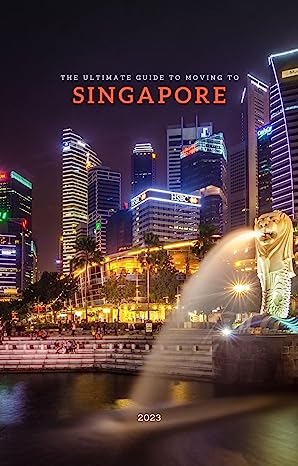Singapore, celebrated for its cultural diversity and economic vibrancy, intricately weaves a legal framework to govern its dynamic recreation and entertainment sector. Sometimes referred to as the “fine city” because of its many different laws, rules, and fines, Singapore is a city-state leading by example with an excellent (or fine) standard of living, giving this nickname a double meaning.
This essay endeavors to provide an extensive exploration of Singapore’s laws surrounding recreation and entertainment, delving into various facets such as licensing for entertainment venues, regulations for outdoor events, gaming and betting laws, intellectual property rights, broadcasting regulations, and the ever-evolving landscape of online entertainment in Singapore.
A Deep Dive Into Singapore’s Entertainment and Recreation Laws
Singapore’s commitment to maintaining public order while fostering a thriving entertainment scene is reflected in its robust legal infrastructure. Striking a balance between promoting cultural vibrancy and ensuring societal well-being, the city-state has enacted laws that govern a wide spectrum of recreational and entertainment activities.
Gaming and Betting Laws
Casinos and Gambling
Singapore’s approach to casinos and gambling is meticulously regulated through the Casino Control Act. Integrated resorts with casinos are overseen to ensure fair play and responsible gaming. The Remote Gambling Act addresses online gambling, prohibiting unauthorized platforms. While there aren’t any legal and regulated online betting platforms in Singapore, there is a plethora of reputable licensed offshore online casinos for players in Singapore to choose from. These sites offer all of the perks and security you’d expect from an online casino, without the regulatory hassles. However, as Matty Treuberg says, you should still only visit casinos that have a reputable license from a trusted international gaming authority.
Betting and Lottery
Betting and lottery activities fall under the jurisdiction of the Common Gaming Houses Act and the Betting Act. Singapore Pools, a state-owned entity, manages legal betting, while unauthorized activities are strictly prohibited. These laws aim to curb illegal gambling, safeguard the public, and maintain the integrity of betting and lottery systems.
Licensing and Regulation of Entertainment Venues
Nightlife Establishments
Singapore takes a proactive approach to ensuring the safety and well-being of patrons at nightlife establishments, which encompass a vibrant spectrum of bars, clubs, and pubs. The regulatory framework governing these venues is primarily rooted in the Public Entertainment and Meetings Act, a comprehensive piece of legislation designed to maintain public order and safety during entertainment events.
Licensing Process
The issuance of licenses for nightlife establishments is a meticulous process overseen by relevant authorities. Operators must navigate a series of stringent requirements to secure and maintain their licenses. These licenses are not only an authorization to operate but also a commitment to upholding safety standards, noise regulations, and age restrictions.
Compliance with Safety Standards
Nightlife establishments are mandated to adhere to strict safety standards to ensure the well-being of patrons. This includes compliance with building codes, fire safety measures, and emergency exit provisions. The objective is to create an environment where individuals can enjoy themselves without compromising their safety, fostering a sense of confidence among patrons.
Noise Regulations
Recognizing the importance of minimizing disturbances to neighboring areas, Singapore’s regulations include specific provisions related to noise control. Nightlife venues are expected to operate within permissible sound levels, especially during designated hours. This helps strike a balance between the vibrant nightlife scene and the residential tranquility of surrounding neighborhoods.
Age Restrictions
To maintain a responsible and age-appropriate environment, age restrictions are imposed on certain nightlife establishments. These restrictions are in place to prevent minors from accessing venues where the nature of entertainment may not be suitable for their age group. Strict adherence to age restrictions is a key component of the licensing process.
Meticulous Inspections
The licensing process involves thorough inspections carried out by relevant authorities. These inspections assess compliance with safety standards, adherence to noise regulations, and the implementation of age restrictions. Inspectors work closely with venue operators to address any areas of concern and ensure that the establishment aligns with regulatory requirements.
Commitment to Safety
Beyond the regulatory requirements, the commitment to safety is ingrained in the culture of nightlife establishments in the fine city. Many operators proactively implement additional safety measures, such as security personnel, surveillance systems, and emergency response plans. These measures contribute to creating a safe and enjoyable nightlife experience for all patrons.
In essence, the regulatory framework governing nightlife establishments in Singapore is designed not only to establish legal parameters but also to foster a culture of responsibility and safety within the entertainment industry. The synergy between regulatory compliance, proactive safety measures, and a commitment to the well-being of patrons collectively contributes to the success of Singapore’s vibrant and secure nightlife scene.
Cinemas and Theatres
The Films Act of 1981 plays a pivotal role in regulating cinemas and theatres in Singapore. Enacted to safeguard public morals and maintain social values, the Films Act empowers regulatory bodies like the Infocomm Media Development Authority (IMDA) to classify films and issue licenses for public screenings.
The classification process involves assessing films based on content, taking into account factors such as explicit scenes, violence, or sensitive themes. Films are categorized into different ratings, ranging from General (G) to Restricted (R21). This classification system ensures that audiences are adequately informed about the content they are about to view, allowing for age-appropriate access.
Cinemas and theatres in Singapore (there’s even one at the airport) must adhere to the guidelines set forth by the Films Act to secure and maintain their licenses. This includes implementing age verification measures and displaying appropriate content warnings. The Act also empowers authorities to take enforcement actions against any breaches, reinforcing the commitment to responsible and socially conscious filmmaking.
One prominent example of a licensed and reputable theater in Singapore is the Esplanade Theatre on the Bay. This iconic cultural venue is known for hosting a diverse range of performances, from international theater productions to local performances, adhering to the strict licensing and safety standards set by regulatory authorities.
Outdoor Events and Public Entertainment
Permits for Events
Organizing outdoor events or public entertainment requires obtaining permits from relevant authorities. The police and local municipal offices evaluate factors such as crowd control, safety measures, and the impact on public order. Adequate planning, security provisions, and compliance with regulations are imperative for permit approval. The National Environment Agency (NEA) actively monitors and enforces noise standards to create a harmonious urban environment.
One notable annual event that successfully navigates the permit process is the Singapore Grand Prix. This Formula 1 race, held on the Marina Bay Street Circuit, involves meticulous planning, security provisions, and compliance with regulations to ensure a thrilling yet safe experience for attendees.
Intellectual Property Rights in Entertainment
Copyright Laws
Intellectual property rights are paramount in the entertainment industry, and Singapore’s Copyright Act protects creators’ rights. From music to films, the Act safeguards artistic works. Entities involved in public performances or content dissemination must secure licenses to comply with copyright regulations, fostering creativity while respecting creators’ rights.
Trademark Protection
Protecting trademarks is vital for entertainment businesses, and the Trade Marks Act facilitates their registration and protection. This ensures the distinctive identity of entertainment brands, preventing unauthorized use or infringement. Singapore’s legal framework acknowledges the importance of trademarks in maintaining a competitive and innovative entertainment landscape.
Broadcasting Laws and Regulations
Regulation of Broadcasting
The Broadcasting Act empowers the Infocomm Media Development Authority (IMDA) to regulate broadcasting in Singapore. This includes television and radio content, ensuring it aligns with societal norms and standards. The IMDA monitors broadcasting entities to maintain quality programming while upholding cultural and social sensitivities.
Licensing for Broadcasting
Broadcasting entities are required to obtain licenses from the IMDA, demonstrating adherence to content standards and regulations. This process includes assessments of program content, ensuring that it complies with legal and ethical guidelines. Licensing aims to guarantee that broadcasted content contributes positively to Singapore’s cultural landscape.
Emerging Trends in Broadcasting
The broadcasting landscape is undergoing transformative changes, with advancements in technology enabling interactive and personalized experiences. Singapore’s regulatory authorities are adapting to these trends, exploring ways to balance innovation with the preservation of cultural values. Streaming services and on-demand platforms are becoming prevalent, prompting discussions on evolving regulations to address the challenges and opportunities presented by these changes.
Online Entertainment and Social Media
Regulation of Online Content
In the digital age, the Broadcasting Act empowers the Infocomm Media Development Authority (IMDA) to comprehensively regulate the ever-expanding realm of online content. Recognizing the transformative impact of the digital landscape on entertainment consumption, this regulatory framework is instrumental in ensuring that online platforms, streaming services, and podcasts contribute positively to Singapore’s cultural milieu.
Balancing Freedom of Expression and Responsible Dissemination
As a forward-thinking approach, the regulatory framework acknowledges the paramount importance of balancing freedom of expression with responsible content dissemination. While fostering a dynamic online entertainment ecosystem that encourages creativity and diversity of voices, the regulations emphasize the need for content to align with societal norms and values.
Content Standards for Online Platforms
Online platforms, including streaming services and podcasts, are subject to stringent content standards set by the IMDA. These standards encompass a wide range of criteria, such as explicit content, hate speech, and culturally sensitive material. Compliance with these standards ensures that the content remains appropriate for diverse audiences, reflecting Singapore’s commitment to a harmonious and inclusive society.
Appropriateness and Societal Norms
The regulatory framework places a significant emphasis on appropriateness in online content. This involves evaluating the suitability of content for different audience groups and ensuring that it resonates with societal norms. The goal is to create an online environment that fosters positive engagement, respects cultural sensitivities, and reflects the diverse fabric of Singaporean society.
Dynamic Adaptation to Evolving Trends
Recognizing the dynamic nature of online entertainment, the regulatory authorities engage in ongoing dialogue with industry stakeholders. This collaborative approach allows for dynamic adaptation to evolving trends, technological advancements, and emerging challenges. By staying attuned to the pulse of the digital landscape, the regulatory framework remains robust and responsive to the changing dynamics of online content consumption.
Striking a Balance for a Vibrant Digital Landscape
In essence, the regulation of online content in Singapore strives to strike a delicate balance. It seeks to create a vibrant digital landscape where freedom of expression thrives, innovative content flourishes, and responsible dissemination becomes the hallmark of online entertainment. By navigating this balance, Singapore aims to foster a digital environment that enriches, informs, and entertains while upholding societal values.
Social Media and Defamation
While social media serves as a powerful tool for entertainment promotion, defamation laws in Singapore apply to online spaces. Individuals and businesses must exercise caution to avoid legal repercussions for defamatory content or false statements made online. The Protection from Harassment Act empowers individuals to seek remedies for online harassment, ensuring a safe online environment.
Challenges and Evolving Trends
Emerging Technologies
The rapid evolution of technology introduces challenges in regulating emerging forms of entertainment. Virtual reality, augmented reality, and interactive experiences raise questions about existing frameworks’ adaptability. Authorities need to stay abreast of technological advancements to ensure regulations remain effective. The dynamic nature of technology requires a proactive approach to address potential legal implications and maintain a cutting-edge entertainment landscape.
The integration of augmented reality in live performances, such as interactive art installations at the ArtScience Museum, poses challenges and opportunities. Regulators are exploring ways to harness technology for creative expression while ensuring compliance with safety and ethical standards.
Cultural Sensitivities
Singapore’s multicultural society necessitates sensitivity to entertainment content. Balancing diverse cultural and religious perspectives within the legal framework is an ongoing challenge. Striking a balance that fosters creativity while respecting cultural sensitivities requires continuous dialogue and adaptation. Authorities, in collaboration with industry stakeholders, must navigate these sensitivities to maintain a harmonious and inclusive entertainment landscape.
The annual Chingay Parade, a multicultural extravaganza celebrating Chinese New Year, showcases the delicate balance between cultural expression and sensitivity. The parade incorporates diverse cultural elements while adhering to regulations that promote understanding and inclusivity.
This comprehensive overview of Singapore’s recreation and entertainment laws provides insight into the multifaceted legal framework that governs various aspects of the city-state’s vibrant cultural scene. From licensing for entertainment venues to real-life examples of renowned theaters and annual events, Singapore’s legal landscape reflects its commitment to fostering a diverse, innovative, and culturally sensitive entertainment environment.
Frequently Asked Questions (FAQs) about Singapore’s Entertainment Laws
- What regulations govern the operation of nightlife establishments in Singapore?
Nightlife establishments in Singapore are regulated under the Public Entertainment and Meetings Act. This comprehensive legislation sets forth safety standards, noise regulations, and age restrictions, ensuring a safe and enjoyable environment for both locals and visitors in Singapore.
- How does the Films Act of 1981 impact cinemas and theatres in Singapore?
The Films Act of 1981 empowers regulatory bodies like the Infocomm Media Development Authority (IMDA) to classify films and issue licenses for public screenings. It ensures that films uphold societal values and moral standards, with a classification system ranging from General (G) to Restricted (R21). Venues showing films are responsible for checking customer identification cards to ensure they meet the age requirements for films as necessary.
- What is the process for obtaining permits for outdoor events and public entertainment?
Organizing outdoor events requires obtaining permits from relevant authorities, such as the police and municipal offices. Factors like crowd control, safety measures, and impact on public order are considered. Adequate planning, security provisions, and regulatory compliance are essential for permit approval. There are a number of great annual events held in Singapore each year that go through this process and uphold the regulations.
- What intellectual property rights are protected under Singapore’s entertainment laws?
Singapore’s Copyright Act safeguards creators’ rights in the entertainment industry. It protects artistic works, including music and films. The Trade Marks Act facilitates the registration and protection of trademarks, ensuring the distinctive identity of entertainment brands.
- How does Singapore regulate online content and social media in the entertainment sector?
The Broadcasting Act empowers the Infocomm Media Development Authority (IMDA) to regulate online content. Streaming services, podcasts, and online platforms must adhere to content standards. Defamation laws apply to social media, ensuring responsible online interactions.
- What challenges arise from emerging technologies in the entertainment industry?
The rapid evolution of technology poses challenges in regulating emerging forms of entertainment, such as virtual reality and augmented reality. Authorities strive to stay abreast of technological advancements to address potential legal implications and maintain a cutting-edge entertainment landscape.
- How does Singapore balance cultural sensitivities in its entertainment laws?
Singapore’s multicultural society requires sensitivity in entertainment content. The legal framework balances diverse cultural and religious perspectives, fostering creativity while respecting cultural sensitivities. Continuous dialogue and adaptation are essential to foster a holistic, inclusive, and well-balanced environment for all.
- Can I bring and use my own camera or recording device in cinemas and theatres in Singapore?
The use of personal recording devices in cinemas and theatres is generally prohibited. Cinemas adhere to strict policies to protect intellectual property rights and the overall viewing experience. The safe answer is no, leave your camera at home when heading to the cinema.
- Are there restrictions on the types of performances allowed in nightlife establishments in Singapore?
Yes, the Public Entertainment and Meetings Act imposes restrictions on certain performances in nightlife establishments. Performances that may be deemed offensive, indecent, or against public morals are restricted. Venue operators must ensure that performances align with regulatory guidelines.
- How does Singapore address the challenge of online piracy and unauthorized streaming of copyrighted content?
Singapore has stringent laws to combat online piracy. The Copyright Act empowers authorities to take action against unauthorized streaming or distribution of copyrighted content. Regulatory bodies work in collaboration with content creators to enforce intellectual property rights and maintain a fair digital landscape.




